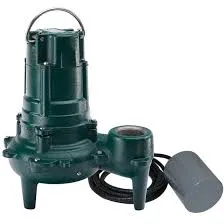Nepali
- Afrikaans
- Albanian
- Amharic
- Arabic
- Armenian
- Azerbaijani
- Basque
- Belarusian
- Bengali
- Bosnian
- Bulgarian
- Catalan
- Cebuano
- Corsican
- Croatian
- Czech
- Danish
- Dutch
- English
- Esperanto
- Estonian
- Finnish
- French
- Frisian
- Galician
- Georgian
- German
- Greek
- Gujarati
- Haitian Creole
- hausa
- hawaiian
- Hebrew
- Hindi
- Miao
- Hungarian
- Icelandic
- igbo
- Indonesian
- irish
- Italian
- Japanese
- Javanese
- Kannada
- kazakh
- Khmer
- Rwandese
- Korean
- Kurdish
- Kyrgyz
- Lao
- Latin
- Latvian
- Lithuanian
- Luxembourgish
- Macedonian
- Malgashi
- Malay
- Malayalam
- Maltese
- Maori
- Marathi
- Mongolian
- Myanmar
- Nepali
- Norwegian
- Norwegian
- Occitan
- Pashto
- Persian
- Polish
- Portuguese
- Punjabi
- Romanian
- Russian
- Samoan
- Scottish Gaelic
- Serbian
- Sesotho
- Shona
- Sindhi
- Sinhala
- Slovak
- Slovenian
- Somali
- Spanish
- Sundanese
- Swahili
- Swedish
- Tagalog
- Tajik
- Tamil
- Tatar
- Telugu
- Thai
- Turkish
- Turkmen
- Ukrainian
- Urdu
- Uighur
- Uzbek
- Vietnamese
- Welsh
- Bantu
- Yiddish
- Yoruba
- Zulu
Telephone: +86 13120555503
Email: frank@cypump.com
डिस . 03, 2024 16:54 Back to list
Efficient Operation and Maintenance of Centrifugal Chemical Pumps for Industrial Applications
Understanding Centrifugal Chemical Pumps A Key Component in Fluid Transfer
Centrifugal pumps have become a cornerstone in various industrial applications, particularly in the chemical processing industry. Their primary function is to transfer fluids by converting rotational kinetic energy, often generated by a motor, into hydrodynamic energy. This article delves into the working principle, applications, advantages, and maintenance considerations of centrifugal chemical pumps.
Working Principle
The operation of a centrifugal chemical pump is straightforward yet effective. The pump features a rotating impeller housed within a casing. When the impeller spins, it imparts kinetic energy to the fluid, causing it to accelerate outward from the center of the impeller to the casing's edge. As the fluid moves, it gathers momentum and pressure, which enables it to flow out of the pump and into pipelines or storage vessels.
The design of these pumps typically includes an inlet and outlet that allows for the seamless flow of chemicals. The centrifugal force generated by the spinning impeller efficiently draws fluid into the pump, making it suitable for moving a wide variety of liquids, including corrosive chemicals, viscous substances, and even slurries.
Applications
Centrifugal chemical pumps are versatile and find applications across numerous sectors. In the chemical processing industry, they are essential for handling a range of fluids, including acids, alkalis, and organic solvents. These pumps are also employed in pharmaceuticals, food and beverage production, water treatment facilities, and oil and gas extraction. Their capability to handle both clean and contaminated fluids makes them invaluable in research and development laboratories as well.
Moreover, centrifugal pumps are often used in cooling systems, where they help circulate coolant liquids to maintain optimal operational temperatures in machinery. In HVAC applications, they manage water flow in heating and cooling systems, ensuring efficiency and reliability.
Advantages
centrifugal chemical pump

One of the main advantages of centrifugal chemical pumps is their efficiency. They provide a high flow rate with comparatively low energy consumption, making them cost-effective over time. Additionally, these pumps are relatively simple in design, which contributes to easier maintenance and lower manufacturing costs.
Centrifugal pumps can also be easily customized to meet the specific requirements of various applications. For example, the materials used for the impeller and casing can be tailored to resist corrosion and wear, accommodating aggressive chemicals or high temperatures.
Furthermore, these pumps operate quietly and generate minimal vibrations, reducing wear and tear on installation and enhancing operator safety. Their simplicity of operation allows for easy automation and integration into existing systems.
Maintenance Considerations
While centrifugal chemical pumps are generally low-maintenance, regular inspections are critical to ensure their longevity and optimal functioning. Common maintenance tasks include checking for leaks, monitoring motor and pump temperatures, and ensuring the impeller is clean and free from debris.
It is also important to select the right pump size and type for the specific application, as improper selection can lead to inefficiencies or damage. Engineers must consider variables such as flow rate, total dynamic head, and the physical and chemical properties of the fluids being pumped.
Conclusion
Centrifugal chemical pumps play a pivotal role in various industrial processes, enabling efficient and effective fluid transfer. Their operational simplicity, compatibility with a wide range of liquids, and ease of maintenance make them a preferred choice in the chemical industry. Whether for large-scale industrial applications or laboratory use, understanding and utilizing centrifugal pumps can significantly enhance productivity and reliability in fluid management.
-
ISG Series Vertical Pipeline Pump - Industrial Fluid Handling | Chi Yuan Pumps
NewsAug.05,2025
-
ISG Series Vertical Pipeline Pump - Chi Yuan Pumps Co., Ltd.|Compact Design&Energy Efficiency
NewsAug.05,2025
-
ISG Series Pipe Pump - Chi Yuan Pumps | High Efficiency, Low Noise
NewsAug.05,2025
-
AI-Optimized Pipeline Pumps | Boost Efficiency
NewsAug.05,2025
-
High-Performance Air Pumps for Sand & Gravel | Efficient Transport
NewsAug.03,2025
-
ISG Series Vertical Pipeline Pump - Chi Yuan Pumps Co., LTD.|Energy Efficiency, Corrosion Resistance
NewsAug.03,2025










